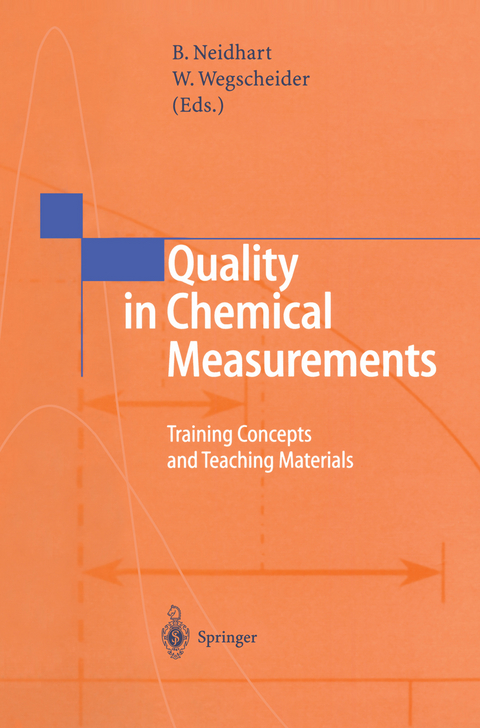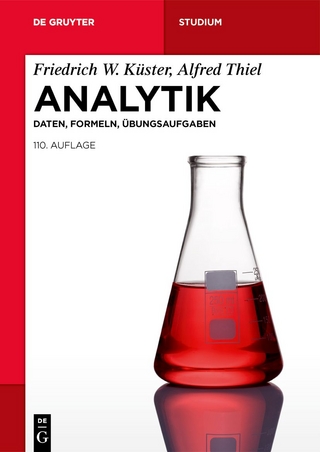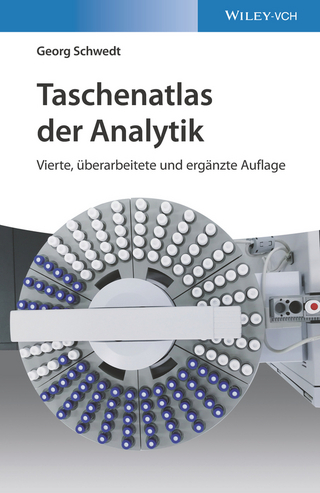
Quality in Chemical Measurements
Springer Berlin (Verlag)
978-3-642-63016-3 (ISBN)
Importance of Analytical Quality Management and Quality Assurance in Industry, Academia and Research Projects.- Why do we need Good Results?.- The Importance of' Good' Measurement on Industrial Manufacturing Efficiency and Profit.- Concepts of Quality Management and Quality Assurance in Analytical Research Projects and Non Routine Analysis.- Worked Examples of Teaching Analytical Quality Concepts.- Quality Systems for Non-routine and R&D Analytical Work - Accreditation of Non-routine Laboratories.- Evaluation of Uncertainty in Analytical Measurement.- Traceability / Trackability.- Validation: an Example.- Metrology in Chemistry.- Experiments as Tools to Demonstrate Principles of Quality Assurance.- Basic Course Experiments to Demonstrate Validation.- Basic Course Experiments to Demonstrate Intercomparisons.- Assessment of Test Kits in Terms of Time, Cost and Quality.- Estimation of Random Deviations in Analytical Methods using Analysis of Variance.- Course Structures, Contents and Experiences.- PT Scheme for Pre-university Students.- Teaching of the Concept of Valid Analytical Measurement: Integration of Quality Assurance (QA) Issues or Separate QA Courses for Higher Education.- Special Requirements for Interlaboratory Proficiency Tests.
| Erscheint lt. Verlag | 3.10.2013 |
|---|---|
| Zusatzinfo | XIV, 178 p. |
| Verlagsort | Berlin |
| Sprache | englisch |
| Maße | 155 x 235 mm |
| Gewicht | 305 g |
| Themenwelt | Naturwissenschaften ► Chemie ► Analytische Chemie |
| Schlagworte | Analytical Chemistry • Chemistry • ecotoxicology • Measurement • Metrology • proficiency testing • quality • Quality assurance • Reliability • Uncertainty • Validation |
| ISBN-10 | 3-642-63016-2 / 3642630162 |
| ISBN-13 | 978-3-642-63016-3 / 9783642630163 |
| Zustand | Neuware |
| Haben Sie eine Frage zum Produkt? |
aus dem Bereich


